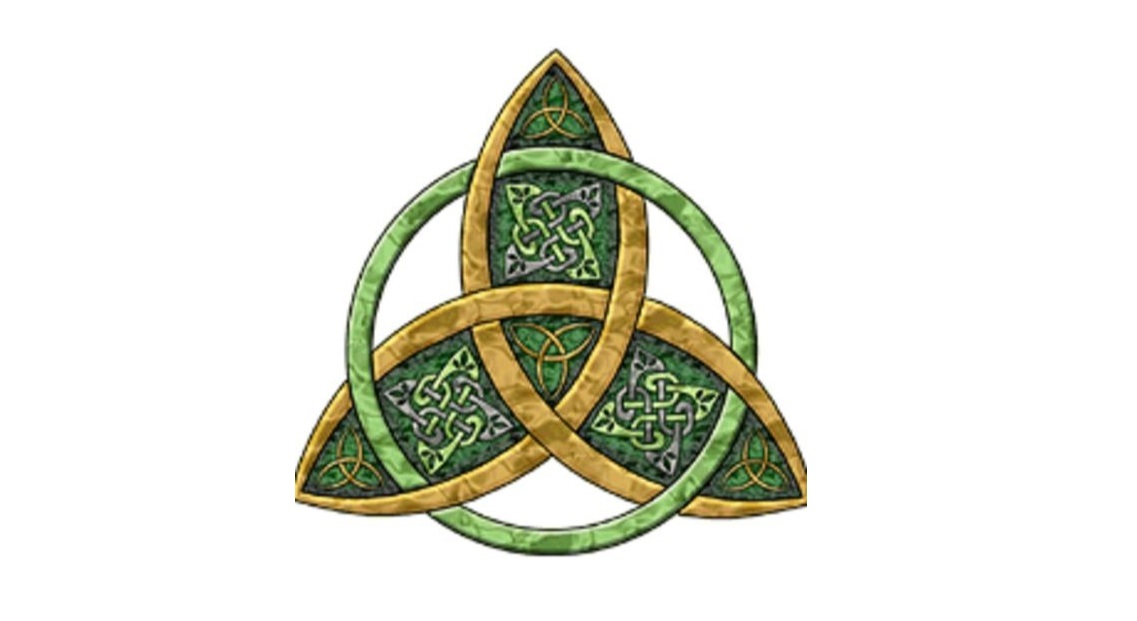God’s Goodness: An Introduction to the Trinity
Photograph: Traditional Irish-Celtic symbol of the Trinity.
Introduction
The Christian God is a fellowship of Father, Son, and Holy Spirit, so God is a communion of love. From eternity, God is fundamentally love, relational, personal, communal, friendship, family. This page presents some basic but foundational understandings about the Trinity.
Messages and Resources Introducing the Trinity
An Introduction to the Trinity vs. the Singularity: Models of God and Why They Matter
Text of a message. God is, and has always been, a loving community of persons. This means He is not a narcissist, but is other-centered, by nature. He is good because He is love, and everything He does is an expression of love. If you enjoyed this message, you might enjoy our Theology 101.
An Introduction to the Trinity vs. the Singularity: Models of God and Why They Matter
Text of a message. God is, and has always been, a loving community of persons. This means He is not a narcissist, but is other-centered, by nature. He is good because He is love, and everything He does is an expression of love.
Teaching the Trinity, Part 1: The Theme of the Father-Son Relationship
A discussion guide to passages primarily from John's Gospel, on the Son revealing the Father, what that means for the character of God, and for our sharing in Jesus' relationship with the Father
Correspondence with TF about the Goodness of God and the Will of God
This is a short exchange on Facebook, copy-pasted, showing the importance of defining God's nature before explaining God's will.
The Trinity: Can Other Gods Be Personally Known?
God is immanent and locatable; God is transcendent and not contained by His appearance; and God is the link between them. This is what makes God personally knowable.
Workbook style, with quotes and questions to help you compare, contrast, and discuss. The differences are enormous, and deeply relevant.
From Dec 25, 2020, a sprawling discussion that started with a quote by Athanasius, explores God’s activities in both the Old Testament and in Christ, shows the importance of including “human nature” in the atonement and not just “human personhood,” and “human desires” in salvation and not just “human deeds.” This link will take you to the actual post on Facebook.
Other Resources Introducing the Trinity
William Paul Young, The Shack. Windblown Media | Amazon page, Jun 2008. Young tells a touching parable about a man who encounters the Father, Son, and Spirit in the shack in which his daughter was kidnapped and murdered. A good introduction to God’s character and fundamental nature as defined by the love between the three Persons, and how that matters to issues of evil and suffering.
C.S. Lewis, Mere Christianity. HarperOne | Amazon page, 1952. Lewis gives a simple and helpful introduction to the Trinity. Lewis starts first with human moral sensibility searching for an anchor point in a framework of good and evil, then moves to Jesus and his work of atonement, then the Trinity. Only a fully good God can heal humanity of our evil, and therefore anchor a moral framework of good and evil.
The Bible Project, God. The Bible Project, Oct 18, 2018. Tim Mackie and Jon Collins do an outstanding job giving an introduction to how an understanding of God developed throughout the biblical time period, eventually offering a way to understand the Trinity in a way that the biblical human authors came to express.
Luke J. Wilson, The Trinity In The Early Church Writings. That Ancient Faith blog, Jan 4, 2022. Wilson compiled a very nice list of quotations from the early Christian writers, with some narration for context.
God’s Goodness: Topics:
Here’s how to navigate this section on God’s Goodness. The Introduction focuses on the biblical presentation of Father, Son, and Holy Spirit; and the implications. Human Becoming spotlights creation and humanity, especially how God made humans as human beings and human becomings. Israel tackles big questions about why God needed an Israel, why God took human life to protect Israel’s vocation. Jesus explains God revealing Himself fully in Jesus, and addresses Protestant notions of limited atonement and double predestination as incompatible with God’s Triune character of love. Holy Spirit explores the divine person of the Spirit and the gifts of the Spirit. Human Destiny explains how desire and development are part of the outworking of human becoming, destiny, and God’s goodness. Divine Fire explains why the portrayal of divine fire in Scripture is always God’s call to participate in refinement and purification. Human Evil explains why God is good by solving the problem of human evil in a loving way. Human Suffering explains why God is good because He suffers with us since the fall, and heals the deepest suffering behind the suffering.










